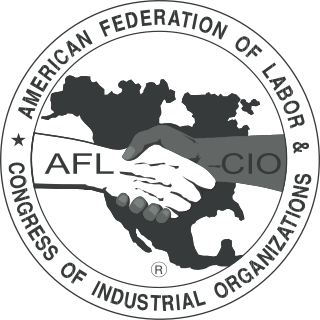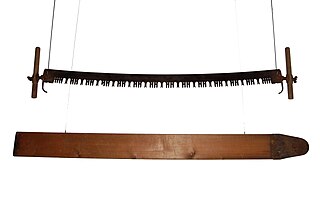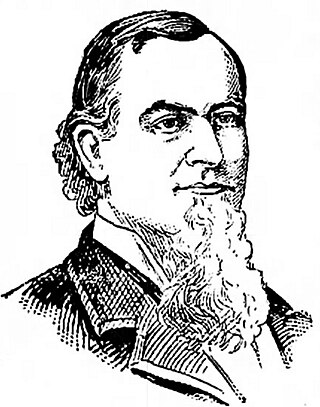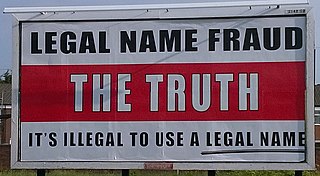Related Research Articles
The Anti-Masonic Party was the earliest third party in the United States. Formally a single-issue party, it strongly opposed Freemasonry in the United States. It was active from the late 1820s, especially in the Northeast, and later attempted to become a major party by expanding its platform to take positions on other issues. It declined quickly after 1832 as most members joined the new Whig Party; it disappeared after 1838.

A secret society is an organization about which the activities, events, inner functioning, or membership are concealed. The society may or may not attempt to conceal its existence. The term usually excludes covert groups, such as intelligence agencies or guerrilla warfare insurgencies, that hide their activities and memberships but maintain a public presence.

The American Federation of Labor and Congress of Industrial Organizations (AFL-CIO) is a national trade union center that is the largest federation of unions in the United States. It is made up of 60 national and international unions, together representing more than 12 million active and retired workers. The AFL-CIO engages in substantial political spending and activism, typically in support of progressive and pro-labor policies.

The National Grange, a.k.a. The Grange, officially named The National Grange of the Order of Patrons of Husbandry, is a social organization in the United States that encourages families to band together to promote the economic and political well-being of the community and agriculture. The Grange, founded after the Civil War in 1867, is the oldest American agricultural advocacy group with a national scope. The Grange actively lobbied state legislatures and Congress for political goals, such as the Granger Laws to lower rates charged by railroads, and rural free mail delivery by the Post Office.

An enforced disappearance is the secret abduction or imprisonment of a person with the support or acquiescence of a state followed by a refusal to acknowledge the person's fate or whereabouts with the intent of placing the victim outside the protection of the law. Often, forced disappearance implies murder whereby a victim is abducted, may be illegally detained, and is often tortured during interrogation, ultimately killed, and the body disposed of secretly. The party committing the murder has plausible deniability as there is no evidence of the victim's death.
The Ancient and Honorable Order of E Clampus Vitus (ECV) is a fraternal organization dedicated to the preservation of the heritage of the Western United States, especially the history of the Mother Lode and gold mining regions of the area. There are chapters in California, Nevada, Arizona, New Mexico, Colorado, Utah, Washington, Idaho, Oregon, Montana and Wyoming. Members call themselves "Clampers." The organization's name is in Dog Latin, and has no known meaning; even the spelling is disputed, sometimes appearing as "Clampus," "Clampsus," or "Clampsis." The motto of the Order, Credo quia absurdum, generally interpreted as meaning "I believe it because it is absurd;" is a Latin phrase popularly misattributed to Tertullian.

A crosscut saw is any saw designed for cutting wood perpendicular to (across) the wood grain. Crosscut saws may be small or large, with small teeth close together for fine work like woodworking or large for coarse work like log bucking, and can be a hand tool or power tool.

Free silver was a major economic policy issue in the United States in the late 19th century. Its advocates were in favor of an expansionary monetary policy featuring the unlimited coinage of silver into money on-demand, as opposed to strict adherence to the more carefully fixed money supply implicit in the gold standard. Free silver became increasingly associated with populism, unions, and the perceived struggle of ordinary Americans against the bankers, monopolists, and robber barons of the Gilded Age. Hence, it became known as the "People's Money".

The sovereign citizen movement is a loose group of anti-government activists, litigants, tax protesters, financial scammers, and conspiracy theorists based mainly in the United States. Sovereign citizens have their own pseudolegal belief system based on misinterpretations of common law and claim to not be subject to any government statutes unless they consent to them. The movement appeared in the United States in the early 1970s and has since expanded to other countries; the similar freeman on the land movement emerged during the 2000s in Canada before spreading to other Commonwealth countries such as Australia, New Zealand and the United Kingdom. The FBI describes sovereign citizens as "anti-government extremists who believe that even though they physically reside in this country, they are separate or 'sovereign' from the United States".

The American Protective Association (APA) was an American anti-Catholic secret society established in 1887 by Protestants. The organization was the largest anti-Catholic movement in the United States during the later part of the 19th century, showing particular regional strength in the Midwest. The group grew rapidly during the early 1890s before collapsing just as abruptly in the aftermath of the election of 1896.
Democratic-Republican Societies were local political organizations formed in the United States in 1793 and 1794 to promote republicanism and democracy and to fight aristocratic tendencies. They were independent of each other and had no coordinating body. Historians use the term "Democratic-Republican" to describe the societies, but that name was rarely used by the societies themselves. They usually called themselves "Democratic," "Republican," "True Republican," "Constitutional," "United Freeman," "Patriotic," "Political," "Franklin," or "Madisonian."

The Provisional Government of Oregon was a popularly elected settler government created in the Oregon Country, in the Pacific Northwest region of North America. Its formation had been advanced at the Champoeg Meetings since February 17, 1841, and it existed from May 2, 1843 until March 3, 1849, and provided a legal system and a common defense amongst the mostly American pioneers settling an area then inhabited by the many Indigenous Nations. Much of the region's geography and many of the Natives were not known by people of European descent until several exploratory tours were authorized at the turn of the 18th and 19th centuries. The Organic Laws of Oregon were adopted in 1843 with its preamble stating that settlers only agreed to the laws "until such time as the United States of America extend their jurisdiction over us". According to a message from the government in 1844, the rising settler population was beginning to flourish among the "savages", who were "the chief obstruction to the entrance of civilization" in a land of "ignorance and idolatry".
The North American fraternity and sorority system began with students who wanted to meet secretly, usually for discussions and debates not thought appropriate by the faculty of their schools. Today they are used as social, professional, and honorary groups that promote varied combinations of community service, leadership, and academic achievement.

A fraternity or fraternal organization is an organization, society, club or fraternal order traditionally of men but also women associated together for various religious or secular aims. Fraternity in the Western concept developed in the Christian context, notably with the religious orders in the Catholic Church during the Middle Ages. The concept was eventually further extended with medieval confraternities and guilds. In the early modern era, these were followed by fraternal orders such as Freemasons, the Rosicrucian Society of England, and Odd Fellows, along with gentlemen's clubs, student fraternities, and fraternal service organizations. Members are occasionally referred to as a brother or – usually in a religious context – frater or friar.
A law enforcement agency (LEA) is any government agency responsible for law enforcement within a specific jurisdiction through the employment and deployment of law enforcement officers and their resources. The most common type of law enforcement agency is the police, but various other forms exist as well, including agencies that focus on specific legal violation, or are organized and overseen by certain authorities. They typically have various powers and legal rights to allow them to perform their duties, such as the power of arrest and the use of force.

The freeman on the land movement, also known as the freemen of the land, the freemen movement, or simply freemen, is a loose group of individuals who adhere to pseudolegal concepts and conspiracy theories implying that they are bound by statute laws only if they consent to those laws. Freemen on the land are mostly present in Commonwealth countries. The movement appeared in Canada in the early 2000s, as an offshoot of the sovereign citizen movement which is more prevalent in the United States.

The Degree of Honor Protective Association is a fraternal benefit society. It was originally organized as a female auxiliary to the Ancient Order of United Workmen, but split off in 1910 to become its own independent group. It merged with Catholic Financial Life in 2017.

The women's club movement was a social movement that took place throughout the United States that established the idea that women had a moral duty and responsibility to transform public policy. While women's organizations had existed earlier, it was not until the Progressive era (1896–1917) that they came to be considered a movement. The first wave of the club movement during the progressive era was started by white, middle-class, Protestant women, and a second phase was led by African-American women.
References
- ↑ Stevens, Albert Clark (1907). The Cyclopædia of Fraternities; a compilation of existing authentic information and the results of original investigation as to more than six hundred secret societies in the United States. New York city: E.B. Treat and Company. p. 301.
 This article incorporates text from this source, which is in the public domain .
This article incorporates text from this source, which is in the public domain . - ↑ Berger, Knute. “A Mysterious Disappearance in Wheat Country.” Crosscut, 1 Mar. 2017, crosscut.com/2017/03/a-mysterious-disappearance-in-wheat-country.
- ↑ Preuss, Arthur A Dictionary of Secret and other Societies St. Louis: B. Herder Book Co. 1924 p.137